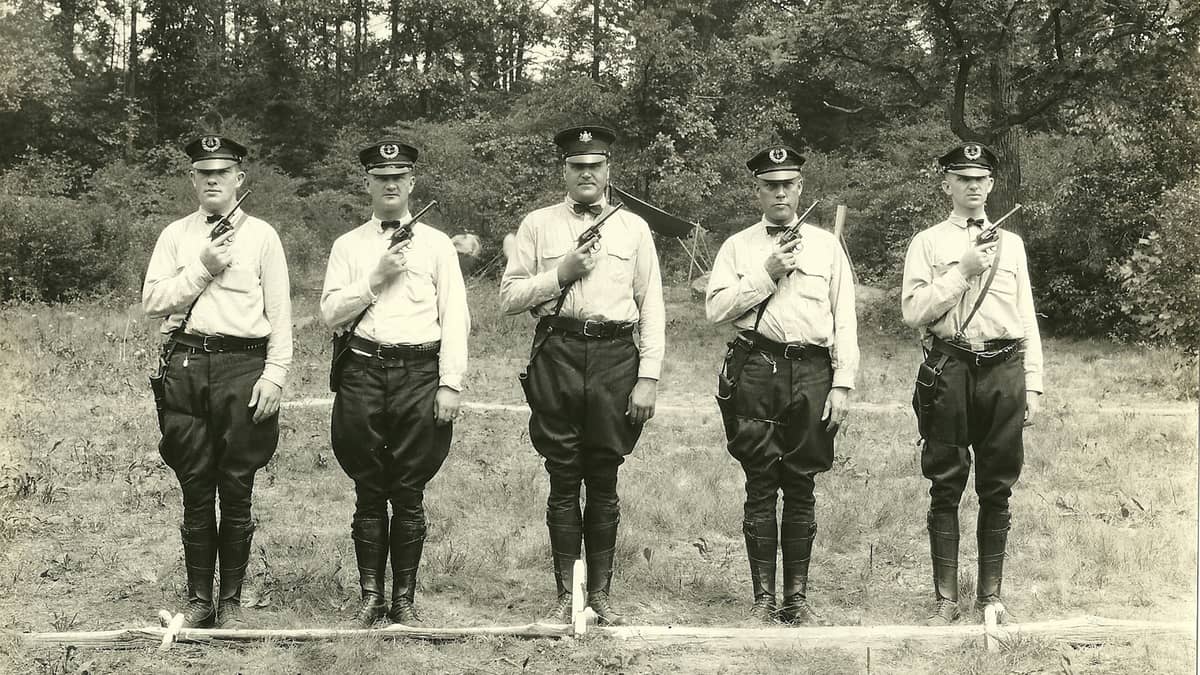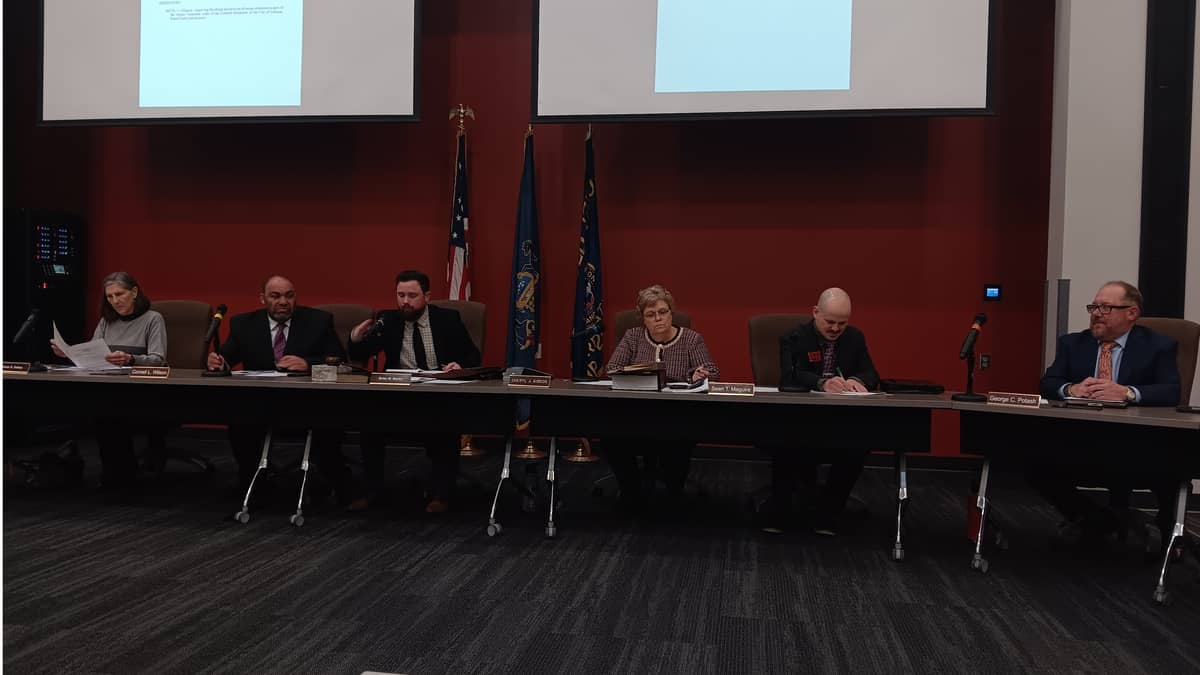The Pennsylvania State Police was the first force of its kind in the country, serving as a role model for other states establishing forces — and part of its development over the years happened right here in Lebanon County.
The force was signed into law on May 2, 1905, under Governor Samuel Pennypacker, following the disastrous Coal and Iron Police, a state-created force employed by powerful industrial interests that was known for acting outside of their stated purpose. Because of fears that, like the Coal and Iron Police, the State Police would “become a private army,” only 228 men were enlisted at the beginning, split among four troops.
Read More: Upcoming dedication of Soldiers Field to recognize Mt. Gretna’s military past
These troops were based in Wilkes-Barre, Reading, Punxsutawney, and Greensburg. A fifth troop in Lancaster was established in 1919, the same year that the force expanded to a maximum of 414 men.
The Pennsylvania State Police Training School was created in Newville in 1920. It remained there until 1923, when it closed, and it was moved to Hershey the following year. In the interim, however, a temporary school was set up in Mt. Gretna.
Mt. Gretna was already home to the Pennsylvania National Guard Military reservation, where the temporary school was to set up. The National Guard’s presence there dated back to 1885, and it remained in the area in varying states of use until 1935, when it closed as Fort Indiantown Gap was being put to use instead.


According to articles in the Lebanon Daily News at the time, the school opened at the start of May and continued for the rest of the summer. The men lived in tents and their exercises included boxing, wrestling, and jiu jitsu, alongside more standard police training drills and lessons in law and procedure. In August, it was announced that the school would be operated for additional weeks for the training of the State Highway Patrol, also created in 1923. Some 150 men arrived in mid-September, and the school lasted for several more weeks.
One man stationed at Mt. Gretna, Corporal Ben F. McEvoy, was sadly killed that September. While attempting to help a stalled motorist in Lancaste County, he was hit by a vehicle and died from his injuries days later.
Besides the temporary school at Mt. Gretna, the state police kept a presence at other sites in the county, most notably at barracks in Annville and Myerstown.
Read More: Myerstown considers restarting police department, town hall to be held Aug. 17

In late 1937, it was announced that a State Motor Police Training School would open in Myerstown. The State Motor Police was the result of the State Highway Patrol — the one that had briefly trained in Mt. Gretna — officially merging with the State Police, which happened in 1937. Governor George Earle had ordered the addition of 500 men to the force, and Myerstown was where the majority of the officers were trained.
The school would occupy what had formerly been the 50-acre campus of Albright College, which had existed in Myerstown from 1898 to 1929, when it moved to its current campus in Berks County. The class, beginning in December of 1937, was composed of several hundred young men, taught by 33 instructors. In March of 1938, 313 officers graduated from the school.

The grounds including dormitories, a dining hall, and office and classroom space. Part of the reasoning behind the creation of the Myerstown school was that the school in Hershey was not able to train enough officers for what the force required. What was normally a six-month course of instruction had also been condensed into three months, and similar training for the Motor Police happened at Fort Indiantown Gap in 1939.
The Sunday News of Lancaster described the school as being run like a military operation, with work being done sunup to sundown, bugles played, and trainees involved in all sorts of exercises (once again including jiu jitsu).
One trainee at Myerstown, Rocco Urella, was named state police commissioner in 1970. Urella is probably best known for permitting women to join the force for the first time in 1971, but in a year he became embroiled in a wiretapping scandal that cost him his position.
The training school at Myerstown continued to train officers over the next year or so, including some who worked for the city. In a little over a decade, barracks would once again be established in Lebanon County, this time in Annville.
The Annville barracks were built along Route 422 in 1952. While the specific address of the barracks can’t be found in newspaper records, it seems likely that the 30-by-46-foot “ranch-type structure” was located near 1325 East Main Street in Annville, the current site of Weber Bros. Auto. The barracks stayed there for at least a decade, though it’s unclear when exactly they were vacated.
Prior to the opening of the barracks in Annville, the state police operated a “sub-station” at 10th and Chestnut Streets in Lebanon for several years.
The State Police act today as law enforcement in many Lebanon County communities and operate one station in Jonestown for Troop L and the Driving Training Center on nearby Awol Road.

Special thanks to Pat Rhen for providing personal research on this topic.
Questions about this story? Suggestions for a future LebTown article? Reach our newsroom using this contact form and we’ll do our best to get back to you.

Support local journalism.
Cancel anytime.
Monthly Subscription
🌟 Annual Subscription
- Still no paywall!
- Fewer ads
- Exclusive events and emails
- All monthly benefits
- Most popular option
- Make a bigger impact
Already a member? Log in here to hide these messages
Free local news isn’t cheap. If you value the coverage LebTown provides, help us make it sustainable. You can unlock more reporting for the community by joining as a monthly or annual member, or supporting our work with a one-time contribution. Cancel anytime.

























